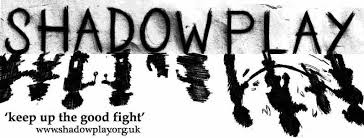Buck 65 is horny. In fact Nova Scotian hip-hop's most prestigious export is practically a walking copy of Nuts with carefully crafted tunes in place of some bird from Big Brother's tits.
Canadian rapper, storyteller and gentle comedian Richard Terfry's appearance on stage at The Garage in Islington is a welcome sight after a number of years of intermittent appearances in the UK. For the uninitiated, Buck is a storyteller who has associations with Anticon records and has spent two decades creating some of the most interesting, innovative and genre-defining hip-hop of his generation. He's also a rather funny, charming fella.
Buck structures his set like a reverse romcom, beginning by telling of his long distance relationship with his wife-to-be, then their move to Paris together before exhaling heavily and saying the last year and a half has been difficult as he got divorced. This story translates into a scintillating set featuring a duo with support act Laura J Martin playing his wife [see video] before Buck performs a tune which repeatedly states "I wish we could start again". It's a painful and surprisingly stark moment for an artist who often morphs into different characters and is surprisingly chipper. "You don't know how hard it was to perform that," he breathes at the end of the song.
But he's got the Pot Noodle horn, apparently, so his midset is dominated by the theme of heavy penetration and fledgling encounters. He bookends his classic tribute to an oversized lover - Centaur - with a rap made form the titles of spam emails about sperm and a poem-cum-rap about his overly amorous chat up lines. He attempts to give off the air of an awkward first timer attempting to find his way, in fact a more eloquent wordsmith able to handle himself in any situation you'll rarely find.
But the gig is not just Buck's catharsis. He plays Superstars Don't Love from latest album 20 Odd Years as well as previewing material from his forthcoming record expected next April. He also cranks out classics including 463 and Wicked and Weird from Talkin Honky Blues which being back many memories including rapping the entirety of the latter on the motorway with my friend Daniel, fucking up my A Level English exams after going to a Buck gig the night before and interview Mr Tefry at the Rescue Rooms in Anton's office.
He also cranks out a slightly bizarre 'Friday night' dance tune which may or may not appear on the new record which is quite fun if a little odd. The set runs a little long and it would've been nice to see the beautiful steel guitar of a full band to enjoy his full range rather than just two turntables and a microphone.
His last couple of records have been a little pedestrian by his very high standards but anyone who's even glanced at ShadowPlay ever will understand why his status as my personal favourite artist ever remains firmly assured. With the prospect of a new heartbreak album moving into view, there's a distinct possibility that this could be Buck's Blood on the Tracks-style defining moment.
Buck 65, Laura J Martin - The Garage, 16/11/12





